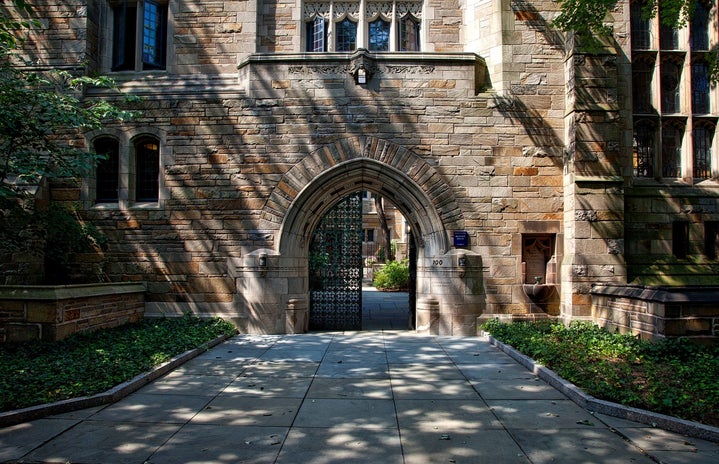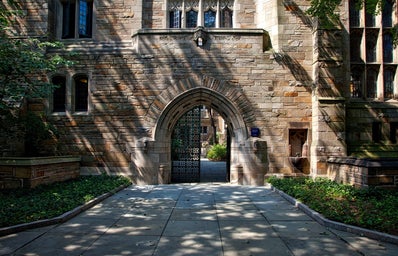Thanks to social media, a lot of college students have gotten into the custom of creating Facebook pages where they can anonymously post their secret thoughts. These “confessions” include anything from crushes to embarrassing moments to angry rants about our ceaselessly annoying (or outright disrespectful) fellow humans.
As a freshman, I checked Kenyon Confessions daily waiting for new posts, convinced that I was exposing myself to an integral part of Kenyon’s culture. Though Kenyon Confessions is pretty popular and checked regularly by many students, my freshman self was perhaps overly eager to read these strangers’ secret, inner thoughts as some sort of dark underbelly of the Kenyon community. I never really took these anonymous musings as anything more than that—things people were too embarrassed, for whatever reason, to say out loud. Still, I happily scrolled through the updates whenever I could, ready for some other person’s misfortune to laugh at.
That is, until one day fine spring afternoon when I was browsing the newest batch of Kenyon Confession posts. I came across one “confession” in particular that was different than the usual tone and even seemed to be speaking directly to me: Underclassmen: When choosing a course of study, ask yourself if it’s something that you actually care about as opposed to something you just find interesting. Otherwise, you find yourself feeling vaguely empty as graduation approaches and wondering why exactly you chose what you did. There’s a difference between being fascinated by something and having a passion for something. (Yes, I was so struck by this anonymous upperclassman’s words that I copy and pasted them from Facebook and still have them saved on my laptop three years later.)
Like most Kenyon students, I entered college undecided about my major, though leaning toward English. The spring of my freshman year I was enrolled in two natural science classes—Neuroscience and Bio Lab—and three humanities classes—Latin, Roman History, and English. The semester before, I had been in two humanities classes—again, Latin and English—and three natural science—Social Psychology, Bio Lab, and Intro Bio. Though it might be obvious from my choices of class enrollment, I was straddling two paths, unwilling to let go or fully commit to either. Though I was sure by that point I would continue to study English, I knew that I was too interested in too many different things to only pick one major. The question became whether I wanted to double in English and Neuroscience or English and Classics?
Although I recognized that taking advice from some random, nameless person on the internet probably wasn’t a great way to make any kind of personal, potentially life defining decision, I couldn’t help but feel like this Kenyon Confession was the solution to my confusion and indecision. Though I was certainly interested in pursuing both Neuroscience and Classics, I could tell that the way I was interested in each was significantly different. Since taking psychology as a senior in high school, and even before then as a sophomore in biology doing my independent project on body language, I knew I was fascinated by the science behind the way people behave. Although I had a less positive experience with Latin in high school, once I got to college and took a Roman History class, I was so enchanted by the idea of a far distant past that it almost seemed like the fantasy novels I had read as a kid, only real. I realized that there was so much I didn’t know about what Classics was, but once I knew a few things, they kept showing up everywhere because of the long-lasting influence ancient Mediterranean cultures had on the Western world. Plus, Classics meant studying not just literature and history, but anthropology, sociology, archaeology, philosophy, and so much more, even science. Meanwhile, in my Neuroscience class I was learning that our understanding of the brain is still severely limited because the science is so new and we simply don’t have enough answers yet. I finally understood that though I was fascinated by what Neuroscience could reveal, I was more passionate about the breadth of things Classics could teach me.
And so, it’s time to finally come out and make my own confession: a Kenyon Confession lead me to where I am today. I’ve never explained this odd influence to anyone before, not even my closest friends, because I felt pretty silly for being so influenced by a space that most people take to be a joke. But I’ll always be grateful to that one anonymous upperclassmen who shared their own unspeakable thoughts with strangers. It just goes to show that you really never know how one small, seemingly meaningless comment can affect another person’s life.
Image credits: Facebook.com, Youtube.com, Pexels

